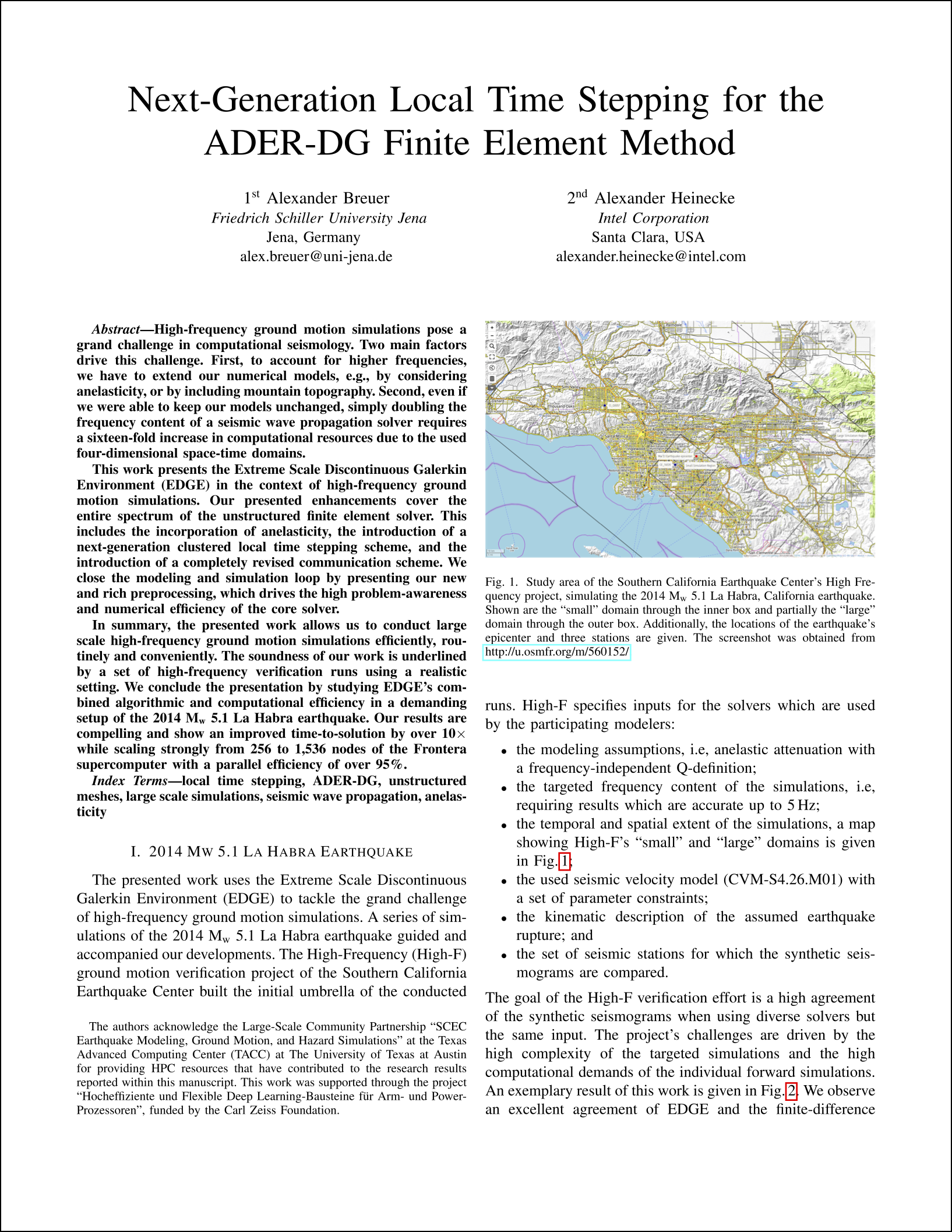Next-Generation Local Time Stepping
The work Next-Generation Local Time Stepping for the ADER-DG Finite Element Method enhances the solver EDGE across the entire modeling and simulation spectrum. A core contribution is the presented new and highly efficient local time stepping scheme for the ADER-DG finite element method. This schemes outperforms the previous state of the art by 1.48x in a common setup. Additional contributions cover the incorporation of the anelastic wave equations into the solver, a new communication scheme which minimizes the pressure on the memory and network, and an end-to-end preprocessing pipeline which enables efficient and large scale high-frequency ground motion simulations.
Our study of EDGE’s fused simulation capabilities shows a parallel efficiency of over 95% when strong scaling from 256 nodes to 1,536 nodes of the Frontera supercomputer. Ultimately, we were able to improve the solver’s single-simulation time-to-solution of a demanding setup by over 10x. For this setup we achieved a hardware performance 1.91 non-zero FP32-PFLOPS on 1,536 nodes (86,016 cores) underlining EDGE’s unprecedented computational efficiency, algorithmic efficiency and scalability.
The final version of this work will be presented at the 36th IEEE International Parallel & Distributed Processing Symposium (IPDPS). IPDPS 2022 will be a virtual conference happening in the time frame from May 30 - June 3.
